- Home
- Helen Fielding
Cause Celeb Page 28
Cause Celeb Read online
Page 28
“Come on, André, don’t muck about.”
“OK,” he said sulkily, and started up the engine, driving slowly through the crowd, honking the horn. They parted to let us through, but Oliver had completely disappeared.
“Stop the car,” I said, and jumped out.
There was a hard knot of people at the center of the throng. Where was he? A Nambulan boy grabbed my arm, and pointed at the ground. A brown Gucci loafer was visible through the djellabas.
“Get out of the way!” I yelled.
He was lying in a pile of rubbish. The people were pressing forward leaning over him, concerned. I bent down. His eyelids flickered.
“What happened?” I whispered. “Are you all right? Are you hurt?”
He opened his eyes.
“I think I, er, fainted,” he said foolishly. Then a look of horror passed over his face. “Oh, Christ!” he said, looking down, appalled, at the cream linen trousers. “Is there a loo around here?”
We dispatched Oliver to the Hilton in a taxi, but by the time we reached the Security office at nine-thirty we had missed General Farouk. He had gone to the airport to receive an important state visitor. After two hours of shuttling to and fro between five different ministries, we emerged, sweating, with a bumper haul of rubber-stamped papers. We had permission to start unloading the plane, permission to release the crew from the cage, permission to travel, permission to take photographs, permission to change money, and a rather uncertainly worded permission for all members of the group to emit satellite waves.
At twelve o’clock, with all this accomplished, we roared up to the airport and hurried to the Security office, only to discover that Edwina Roper had already been sent back to London and our permission to release the crew was invalid because it had not been signed by General Farouk. It took several hours to sort that one out, and by the time the disgruntled crew had departed for the Hilton, muttering about overtime payments, the heat had gone out of the day, the drivers for the trucks had disappeared and there was no one around to open up the plane.
It was 10:00 P.M. when André dropped me back at the hotel. As I turned to wave him off a convoy of white government limousines was sweeping into the driveway, little flags fluttering on the hoods. Before the cars had stopped moving, the doors opened and two soldiers jumped from each one, jogging in formation to form a guard of honor outside the revolving door, rifles cocked. Next, the tall, uniformed figure of General Farouk emerged from the second car. He turned graciously and handed out a tall, slender woman in brightly colored Kenyan robes, with an enormous headdress. A small fat man scrambled after them, clad in a tight, rumpled white suit. He looked like Mike de Sykes. He looked back for a moment and I caught a glimpse of his face. It was Mike de Sykes. Mike de Sykes and Nadia Simpson. So these were the honored guests of the state whom General Farouk was meeting at the airport.
The concierge looked at me oddly as I entered the lobby.
“Can I help you?” he said with some alarm.
I realized I must look a bit of a mess. I cleaned myself up briefly in the ladies’, then headed for the bar where Vernon, Corinna and Julian were sitting around looking bored. Four giant golden balls were suspended above the bar area where huddles of neatly dressed aid officials talked in hushed, urgent tones, and the light-aircraft pilots and engineers, recognizable by their burnt faces and dry blond mustaches, looked around, bored. Dotted between them, sipping at tall fruit punches, were men with guns in dark-green uniforms.
I glanced at Vernon and choked on my mouthful. There was a half bottle of Scotch between his leg and the chair.
“Ahm, Vernon. You do know all these men in uniform are the Security forces?” My voice came out unexpectedly high.
“Don’t you worry, my darling. I’ve got plenty of dollars in my back pocket.”
“Please, Vernon, hide the Scotch?” Please, please, don’t let’s get done for alcohol, I was praying. Please let’s not have any more Security dramas.
“Naah.” Vernon was reaching for the bottle, unscrewing the top.
“Vernon, get rid of the Scotch.”
He looked up sharply at my tone. “You’ll get a slap in a minute, my girl.”
“Oh, puh-lease,” snapped Corinna.
“Where have you been, anyway?” said Julian plaintively. “Oliver’s in bed with his stomach. And Kate is very upset about what they’ve done to her hair. I told her it looked fine but . . .”
I explained.
“You’d better get your act together, my girl,” said Vernon. “Any more messing about like this and we won’t get this show on the road.”
“The trucks will be loaded in an hour,” I said. “They’re going to stop by here, to confirm it’s all gone OK, then head off down to Safila. They should be there by dawn.”
“Yer what?” said Vernon.
I repeated the sentence.
“Listen, luvvie. Those trucks are going nowhere tonight.”
“What do you mean?”
“Call me old-fashioned. But I thought we were here to make a television program about a famine. Now when those trucks set off to that camp, we are going to film them setting off to that camp. And when that food arrives at that camp, we are going to film it arriving at that camp. Comprende? This is what we in television mean by making a television program.”
“Oh, puh-lease,” said Corinna.
I took more deep breaths. Then went over the situation again.
“The trucks must leave tonight.”
“No, no. The longer we leave it the better. Can you see those pictures when we roar into that camp, six bloody lorries in a convoy, CDT breaks through with the food to end the famine?”
He was just drunk. He wasn’t thinking straight.
“The lorries are going tonight,” I said, dangerously.
“The lorries, my love, are going nowhere without us.”
“Then we’d better all start packing. We leave in an hour.”
“Blast. Right,” said Julian. “Right. Absolutely right.”
“Sit down, lad,” said Vernon. “We can’t film nothing in the dark.”
We were getting nowhere. He wouldn’t budge. It was Corinna who saved the day.
“Vernon,” she said, leaning towards him. “Have you thought about the children?” She put her hand on his knee. “The kiddies? Little kiddies, hungry and dying because you’re drunk?”
Five minutes later Vernon was still wiping tears from his eyes and we had a deal. There were six lorries. Three would leave tonight, loaded. The other three would leave at 7:00 A.M. tomorrow with the rest of us.
CHAPTER
Twenty-six
Oh, look at that. Blast, I’ve missed it. Oh, look another one,” said Julian, staring out of the window at the passing desert.
“Another what?”
“Camel. Look. I say, I don’t suppose I could stop and take a photo, could I?”
“You’ve already got twelve pictures of camels.”
“But, you see, the sun’s behind me now which is much better because—”
“Wait till we stop again for Oliver.”
Poor Oliver kept having to trek across the sand to squat behind skimpy bushes with a toilet roll.
“Do you think if I gave the people in this camp some money it would help them, or is it only the food they want?” said Julian.
“It would help, but you have to do it in the right way.”
“Could I have another boiled sweet, please?”
“Of course you can. Here you are,” I said, and let him put the wrapper in my bag.
We had been on the road since 7:00 A.M. . The air above the tarmac shimmered in the heat, the desert spreading flat to the horizon on either side. To the left a group of huts was soft brown against the sand. To the right, a quarter of a mile away, the camel which had attracted Julian was tugging at a tuft of thorns. A nomad clad in soft blue and gray was sitting motionless on its back.
“Braargh! Oh! Oh!” Kate Fortune screamed.
&nb
sp; The truck ahead of us had braked slightly. She put one hand against her chest and the other on her forehead.
“Heurgh. Oh, I’m sorry. Oh!”
The driver, Fayed, looked daggers at her from under his turban. We were the second vehicle in the convoy.
“I’m sorry. I really think . . . you know I have a child who is dependent on me at home, and this really isn’t safe.”
She reached for her hair to flick it back, and an expression of anguish crossed her face. Kate had decided to have a light body wave at the hotel hairdresser’s. This single casual decision had transformed the once long, straight, silken tresses into a dry-ended frizz, reminiscent of old ladies in markets with more on their minds than hairstyles. Kate had been combing conditioner through the frizz throughout the journey, but the combination of goo and dry heat only served to coagulate the fraying mass.
She let out a sob, and grabbed a handful of frizz, yanking at it madly.
“I can’t believe this has happened to me. It’s too awful. I can’t go on screen like this. I’m going to sue them, sue them.”
She turned to me beseechingly. “Does it really look awful?”
“You could always wear a hat,” said Julian.
Kate broke into a wail. Fayed looked round at her furiously.
“Or a scarf,” Julian finished helpfully.
“It’s nice, Kate, honestly,” I lied. “It’s good to have a change of look for a program like this. It suits you.”
“Do you really think so? Really?” She grabbed at the rearview mirror and turned it towards her. Fayed muttered something unintelligible, grabbed the mirror and twisted it back. He kept glancing across at her now, as if she were a dangerous mental patient. She burst into tears again.
Actually, I did feel sorry for her. Just because there was a famine it didn’t mean your own problems stopped existing. “It’s not what you look like that matters. It’s what you’re like inside,” I ventured vaguely.
“So it does look awful,” she wailed.
Fayed changed violently to a lower gear.
Soon, we were driving through a sand cloud which seemed to have been thrown up by the wheels of the convoy. We closed the windows, and turned off the air-conditioning, but the dust filled the cab so that we had to wrap cloth round our heads to keep the sand out of our eyes and stop us coughing. Kate was trying to take out her contact lenses under a piece of white cotton.
“What’s that?” said Julian.
The lorry in front of us had groaned to a halt, and then started reversing towards us. I looked where Julian was pointing and saw a naked body, curled up in a fetal position lying in the lee of a rock. The wind was rolling the body slightly. It had stiffened, and a layer of sand was blowing over the ribs.
The whole convoy was pulling up, and I asked Julian to let me get out past him but he climbed out before me. The drivers from our truck and the truck in front went over to the body. I walked down towards the other vehicles. We were in one of the areas of rocky outcrop, which dotted the desert floor like giant molehills. Sandstone rose on either side of us, worn by the wind into smooth sculptures, with boulders and smaller rocks forming stationary avalanches in the gulleys. The dust hung around the mountains like mist. The wind was blowing the sand quite hard now so that it stung my skin and I had to pull the shawl over my face. The next vehicle behind us was the Land Cruiser where Corinna and the TV soundman were traveling. Corinna was wearing dark glasses and listening to her Walkman. I asked the soundman to tell the rest of the convoy to stay in the vehicles because it wasn’t good if everyone crowded round the body.
As I walked back, the drivers were wrapping the body in a piece of sacking. When I got close I asked them to stop and unwrap it again. It was an old woman who was very thin. She had died with her mouth and eyes wide open. She had no teeth and the gums were jagged and dry and full of flies. The drivers wrapped her again and lifted her into the back of the lorry at the head of the convoy.
“What do you think happened?” said Julian, as we started up again. His face was sweating.
“I don’t know. They don’t leave their dead unburied here. She might have been a madwoman.”
“Why a madwoman?”
“Sometimes villages turn mad people out into the desert. That might be why she died alone. I hope so.”
“Why?” I didn’t answer.
“Why, Rosie?” he said again.
“Because if not, then she’s a refugee from Kefti, and refugees from Kefti don’t usually abandon the dying or leave their dead unburied.”
“So why would they abandon her?” Shut up. Please, just let me think.
“Because they were desperate,” I said. But to cross that psychological barrier they would have to be very desperate indeed. She didn’t even have a shroud.
“But why should they—”
“Please. Just be quiet now. Look, there’s a desert rat— Look where my finger’s pointing.”
The road was approaching a bend and after that we would hit the open desert again. I was afraid of what we would see, because after this the road ran parallel with the Kefti border and our route would merge for a while with that of the refugees. The truck ahead had disappeared round the bend and we were turning now. My breath was caught in my stomach. As we cleared the bend, the desert unfolded itself under the thick yellow sky, flat, featureless, empty. I was stunned. Where were they? If not even stragglers were left on this part of the route they must have brought a very sudden disaster to Safila.
We had been driving for perhaps another half hour when we heard the whine of a plane, quite a way off.
“Hey! What’s that?”
“A plane, Julian.”
“Who do you think it is?”
“Probably the UN,” I said, with more confidence than I felt. The driver glanced across at me. Planes this close to the border made us very nervous. We could not have been a more obvious Aboutian target: nine vehicles in open desert bringing food for the Keftians.
“I say,” said Julian, turning to me with huge eyes, “I say, it wouldn’t be any of those rebel fighters, would it?”
“Oh, no. I can’t believe this.” Kate Fortune was hyperventilating. “I was told it was safe. I can’t believe this. I have a child at home. I was told it was safe.”
“We are safe. It’s fine. We’re in Nambula,” I lied in a gay voice, trying to listen to the engine as the plane got closer. It didn’t sound like a MiG. It wasn’t a MiG. It was a small plane: quite low. It was overhead now. We all peered up through the windshield. It was a Cessna: dark green with the insignia of the Security forces painted on the side and heading for Safila. Now what did that mean? Nothing was making any sense.
An hour from Safila we stopped at a village where there was a restaurant—or, rather, an indescribably filthy area of boiling cauldrons and soda crates. The ground here was covered in dry yellow grass, dotted with failed spindly trees. It was still cloudy, with an oppressive heat unrelieved by breeze. It was three o’clock. I wanted to get to Safila in time to distribute the food before dark. Oliver was already rushing off across the scrub clutching a loo roll. Everyone else began getting out, putting their hands on the small of their backs, stretching their arms. People in djellabas were appearing from nowhere, gathering round the trucks. I could see us getting involved and losing time. Now we were so close, I was desperate to be back. I asked the restaurant manager if he had news of what was happening at Safila. He said he had heard that things were very bad there, but that was all. It was hard to believe that Safila could revert to the way it was in ’eighty-five but I knew it was possible. It didn’t take very long for things to spiral out of control.
“’Ere, is it all right to eat this muck?” asked Vernon, gesturing towards the cauldron.
“Depends how hungry you are,” I said.
Corinna was sitting under the rush shelter on a metal chair. She was still completely withdrawn behind her shades and her Walkman. It seemed very odd, but I guessed she was just a bit th
rown and trying to keep herself together. Kate was posing for the News photographer, crouching down with a little crowd of kids, ordering them to put their arms round her. Suddenly they all looked in one direction and rushed off. They were heading for Julian, who was completely surrounded. He was bending down, beaming like Santa Claus, then putting his hands on his ears and making a noise like a donkey to make the kids scream.
He looked across at me radiantly. “Aren’t they super? Blast. Hang on. Run out.” He did the donkey impersonation again.
Oliver was leaning over one of the Land Cruisers. He looked in a very bad way. He must have lost half a stone. I walked over to him.
“Have you had anything to drink?”
“No.”
“You must. I’ll go and get you some salts.”
“No, no. I don’t want any salts. I don’t want anything to drink.”
“You must, you’ve lost so much fluid.”
He looked at me with the expression of an ax murderer. “I said I don’t—want—anything—to—drink, all right?”
The Nambulans near him started to laugh. He treated them to the thunderous look and they laughed again. Bad temper was taken so seriously here that you hardly ever saw it. They wouldn’t understand a temper which flared up like this, without apparent cause.
“Jesus Christ!” he shouted at them. The Nambulans threw back their heads and roared appreciatively.
“Fucking hell.” He banged his fist down on the Land Cruiser, occasioning another great shout of laughter and delighted round of applause. Quite a little group had gathered about him now, waiting eagerly to see what he would do next. I glanced nervously around our team, wondering how we were going to cope with Safila in the grip of a famine. There was a tug on my sleeve. It was one of the cooks from the restaurant.
“This very bad man,” he said. “Very bad man.” He was pointing towards Vernon, who at that moment was reaching out to pat a young Nambulan woman, dressed in purdah, on the bottom. The cook, who I thought was probably married to the woman, hurried back towards Vernon. Kate was sitting in the Land Cruiser now, gesticulating at a group around her window.

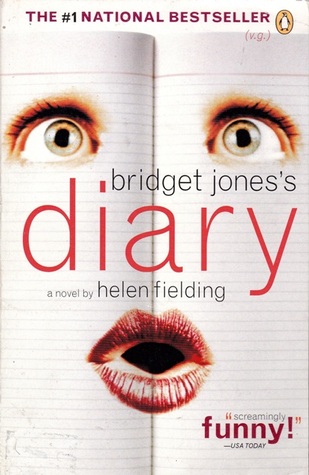 Bridget Jones's Diary
Bridget Jones's Diary Bridget Jones's Baby: The Diaries
Bridget Jones's Baby: The Diaries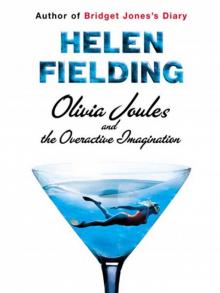 Olivia Joules and the Overactive Imagination
Olivia Joules and the Overactive Imagination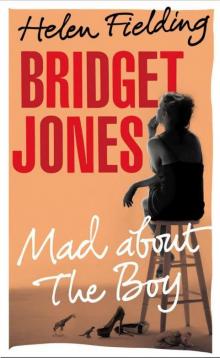 Mad About the Boy
Mad About the Boy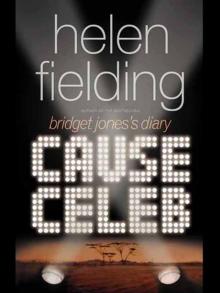 Cause Celeb
Cause Celeb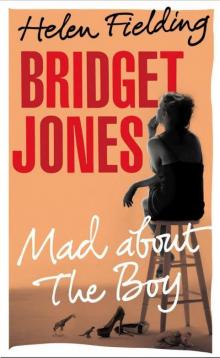 Bridget Jones: Mad About the Boy
Bridget Jones: Mad About the Boy The Edge of Reason
The Edge of Reason Bridget Jones's Baby
Bridget Jones's Baby